North Korea asserts first evidence of tactical nuclear weapons
- Published
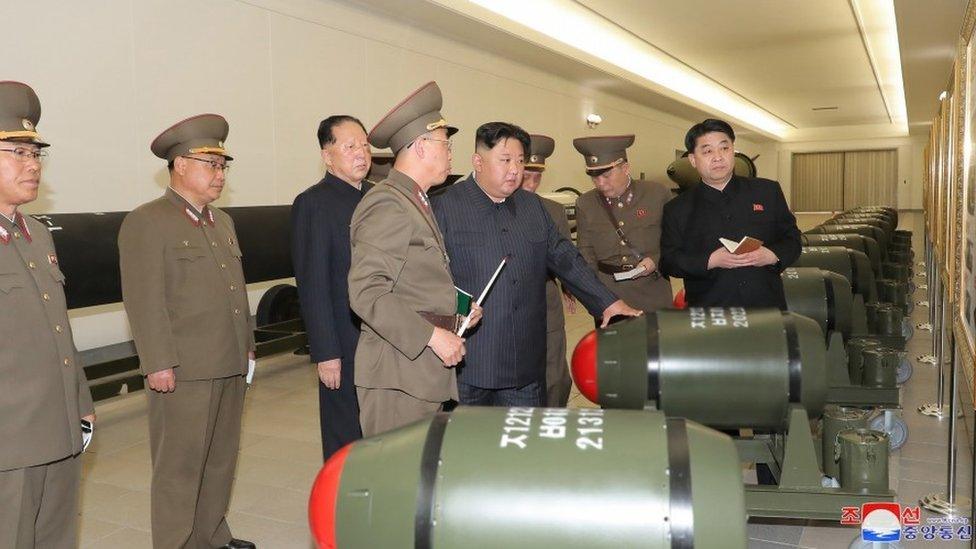
Kim Jong Un with what North Korean state media says are tactical nuclear weapons
North Korea has revealed small nuclear warheads, which it says can be fitted on to short-range missiles.
The North has long claimed it has tactical nuclear weapons, capable of hitting targets in South Korea.
But the photos published in its state newspaper on Tuesday are the first time it has provided evidence.
However, it is impossible to verify whether they are the real deal. Until North Korea tests one of these devices, we are left guessing.
Pyongyang has spent the past fortnight firing a barrage of what it says are nuclear-capable weapons, while simulating nuclear attacks on Seoul.
Admittedly it is hard to keep track of North Korea's missile launches these days. The tests in isolation no longer generate the headlines they used to, but if we look at them all together there is much we can learn.
North Korea says it is punishing the US and South Korea for holding their largest military drills in years. The allies have been practising how to defeat the North in the event of an attack. This is not a scenario its leader Kim Jong Un relishes.
Only this is not a typical North Korean protest. In the past it has responded to such drills by firing off a mix of short, medium, and long-range missiles, and perhaps some artillery shells.
This time, over the course of two weeks, Pyongyang has launched its most powerful intercontinental ballistic missile, which can reach anywhere on the US mainland, in theory.
It has fired missiles from a submarine, and from what appears to be an underground silo. Its military has simulated a nuclear attack on a South Korean airfield.
And Kim Jong Un has unveiled a new underwater drone, which he claims can fire nuclear weapons under the sea to unleash a "super-scale radioactive tsunami" and destroy enemy warships.
On top of this, it has now unveiled nuclear warheads it claims can be fitted to these weapons.
This is an eclectic and troubling line-up.
Analyst Ellen Kim, from the Centre for Strategic and International Studies, described it to me as "the North Korean equivalent of a fashion show" - a nod to the Dior-style jacket Mr Kim's daughter was spotted wearing to one of the launches.
Analysts, including Ms Kim, are concerned by the diversity of the collection that has been paraded this season. Pyongyang has unveiled new and more sophisticated, weapons, which can be fired from sea and land to target the US, South Korea, and Japan.
"Before, we did not know they were able to fire cruise missiles from submarines, or missiles from under the ground. Its weapons are becoming much more difficult to track and intercept," Ms Kim said.
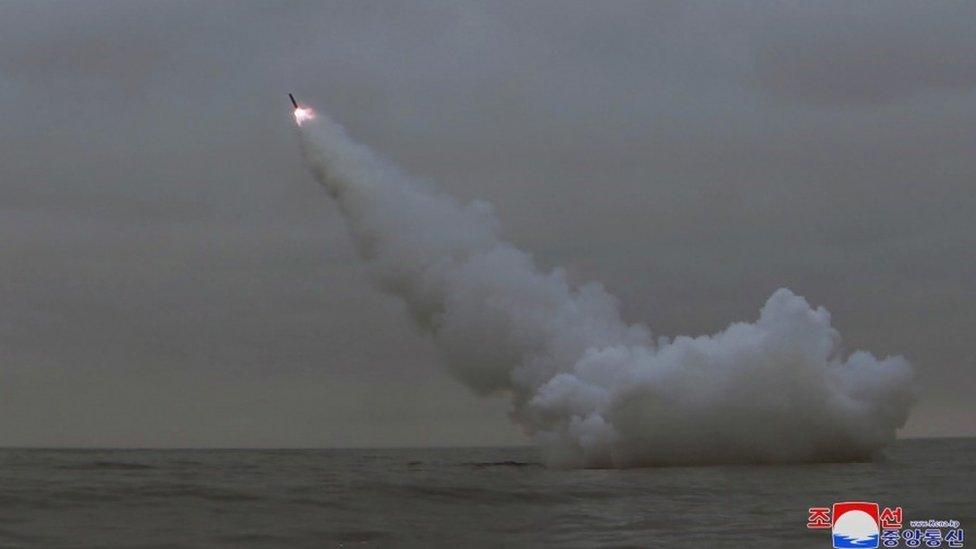
North Korea's underwater test has caused concern
This raises the nuclear threat North Korea poses.
Take the cruise missiles fired from a submarine as an example. These missiles are the most concerning to Yang Uk, a weapons expert from the Asan Institute in Seoul. As he explains, firing a missile from under the water makes it harder to detect ahead of launch. After launch, cruise missiles fly low, and can be manoeuvred mid-flight, to outsmart missile defences.
Kim Jong Un has always feared the US will attack his country first, and wipe out its weapons before he has the chance to use them. The message he appears to be sending with this array of tests, is that the North now has the ability to strike back, or even strike first. It is difficult to destroy weapons concealed underground or underwater.
In other words he is saying "don't think about attacking us".
However, we should exercise caution. Mr Kim has a tendency to exaggerate his military's abilities.
The lingering question has always been whether North Korea actually has the nuclear warheads to attach to these missiles. Most of the weapons displayed recently would only be able to carry a very small, lightweight warhead. Until now, we have seen no proof Pyongyang has managed to develop them.
On Tuesday, it provided the first piece of evidence. Photos published in the main state newspaper show Kim Jong Un inspecting a row of what it said were small nuclear warheads.
There is no way to verify the warheads are what they say. This is why the intelligence community has been holding its breath for so long, waiting for said nuclear test.
The moment North Korea is able to build miniaturised warheads on a mass scale, it the moment its simulated threats become real, and it can strike South Korea and Japan with nuclear weapons.
There are some who argue the US and the international community should be doing more to get the North back to the negotiating table, to prevent this nuclear test. Talks between the two sides have but stalled for more than four years. But Pyongyang has shown no sign it wants to talk. It tends to pick the moment when it thinks it has the most to gain.
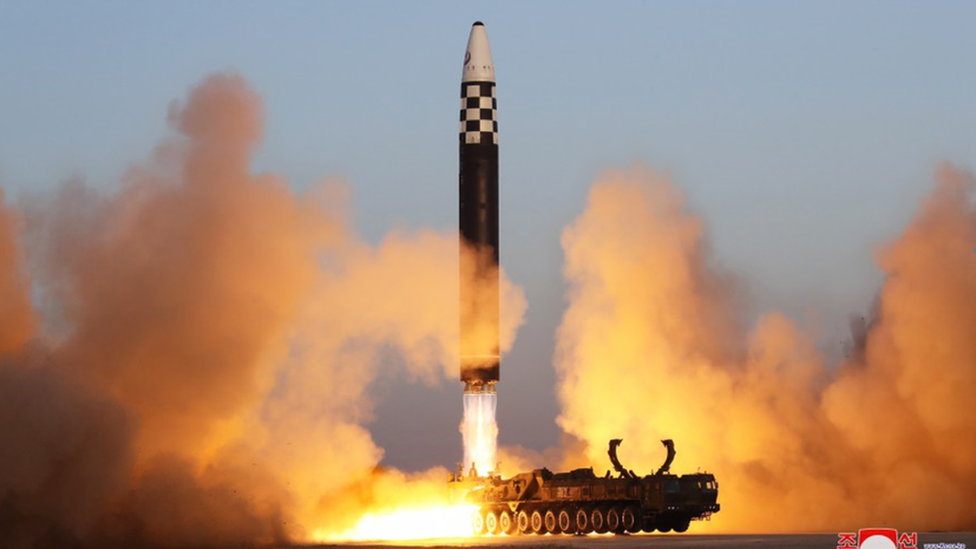
Kim Jong Un is often accused of exaggerating North Korea's military capacity
With China and Russia refusing to punish North Korea at the UN Security Council, it can continue developing its weapons without consequence. Why stop now? The better its weapons, the stronger its hand, and it still has more to prove.
In addition to miniaturised warheads, it is yet to demonstrate that its regular warheads can survive a full intercontinental flight. Currently, the North tests long-range missiles by firing them high into space. It also wants to develop a more sophisticated ICBM, that does not need to be fuelled before launch, and so can be fired with less warning.
Yang Uk believes Kim Jong Un is also being driven by a desperate situation at home. With a flailing economy, and his people going hungry, his advancing nuclear weapons programme is "the only card he has left to play", Yang says.
North Korea therefore looks set to forge ahead, developing an ever more diverse and deadlier range of weapons.
For Ellen Kim, only one thing is certain: "More tests will come."
Related topics
- Published24 March 2023
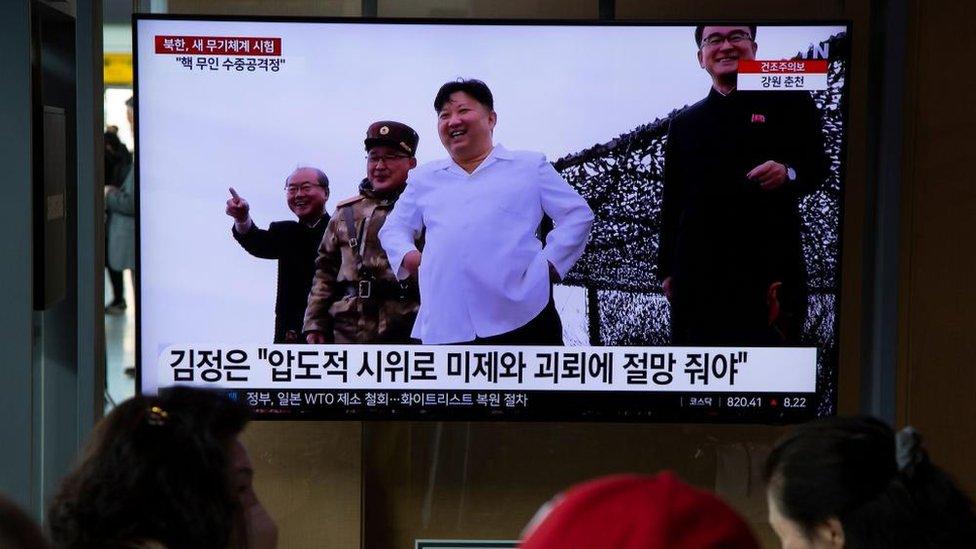
- Published5 September 2023
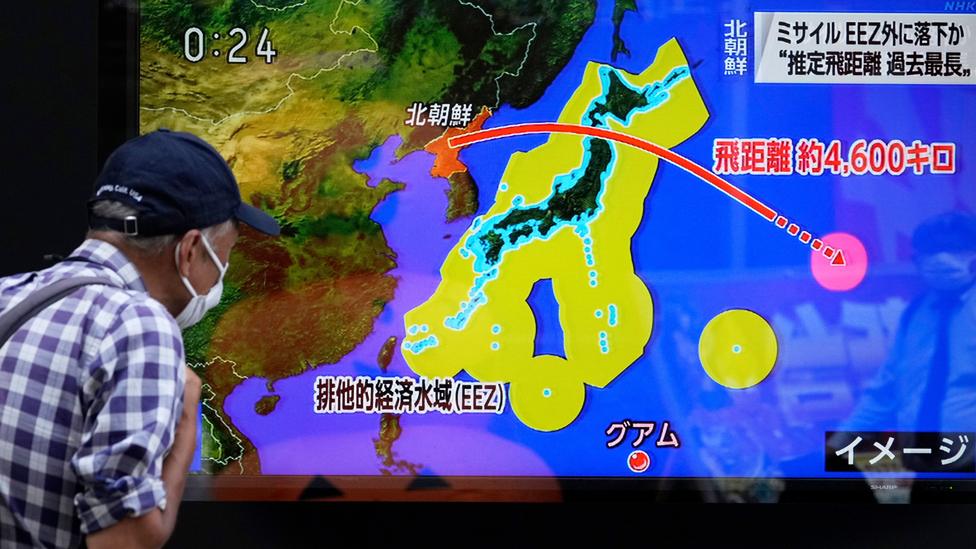
- Published9 February 2023
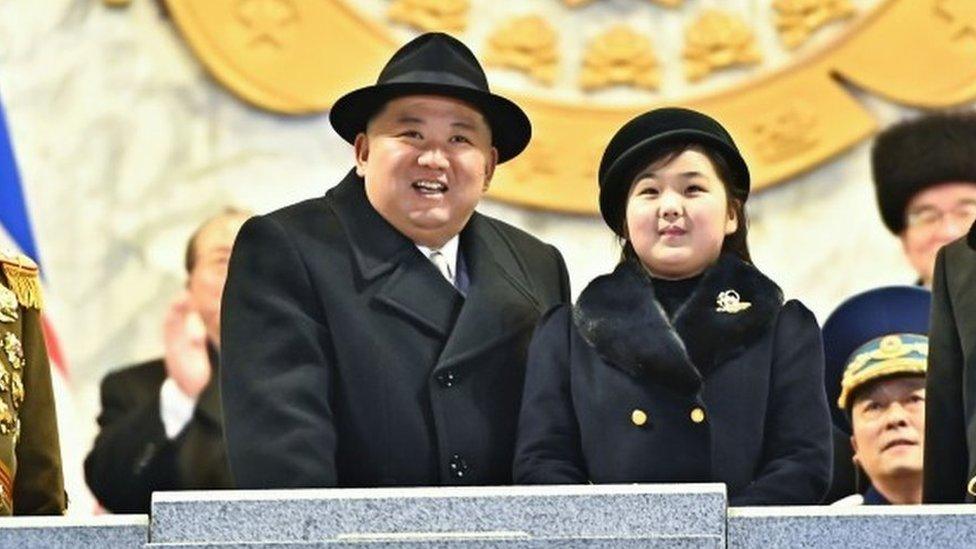
- Published22 February 2023
